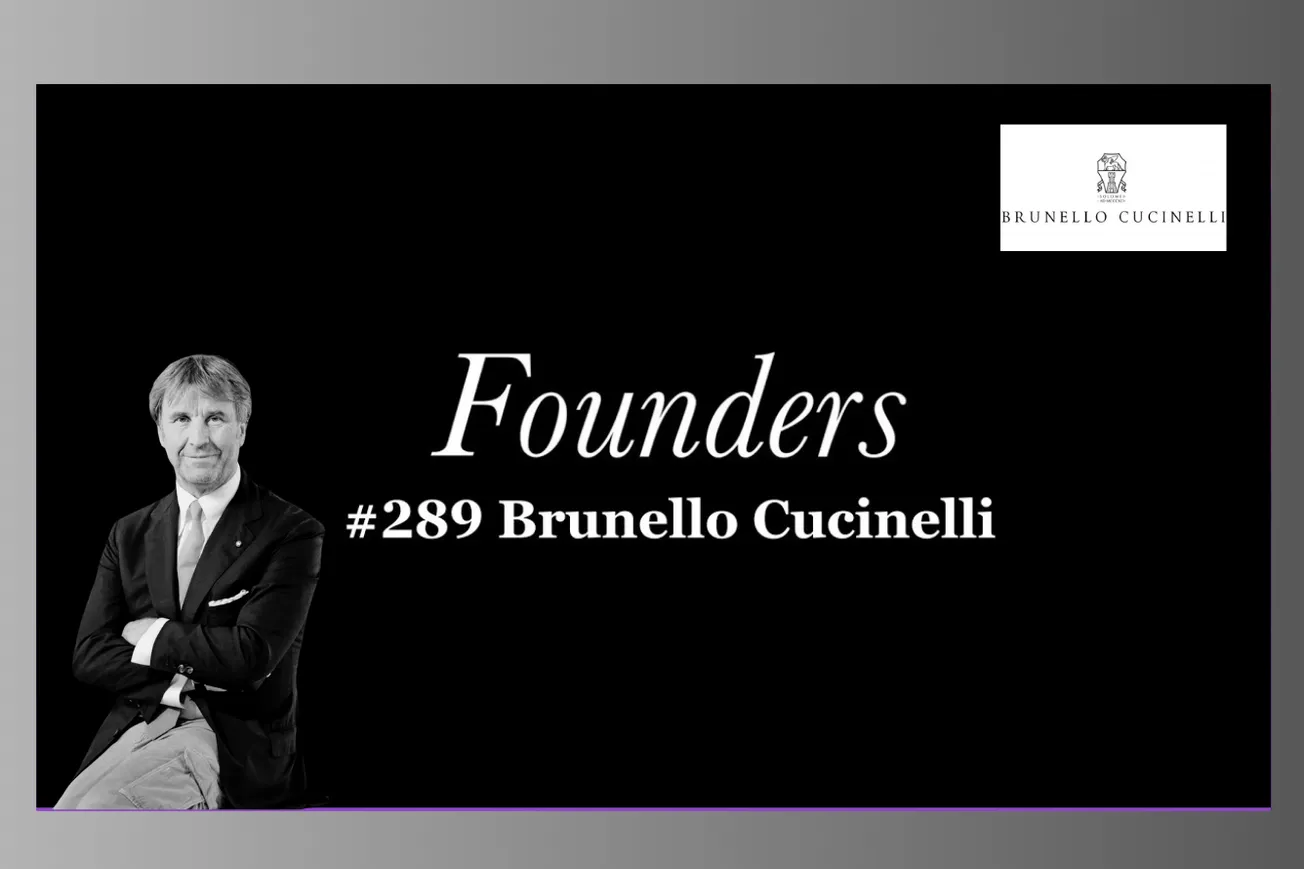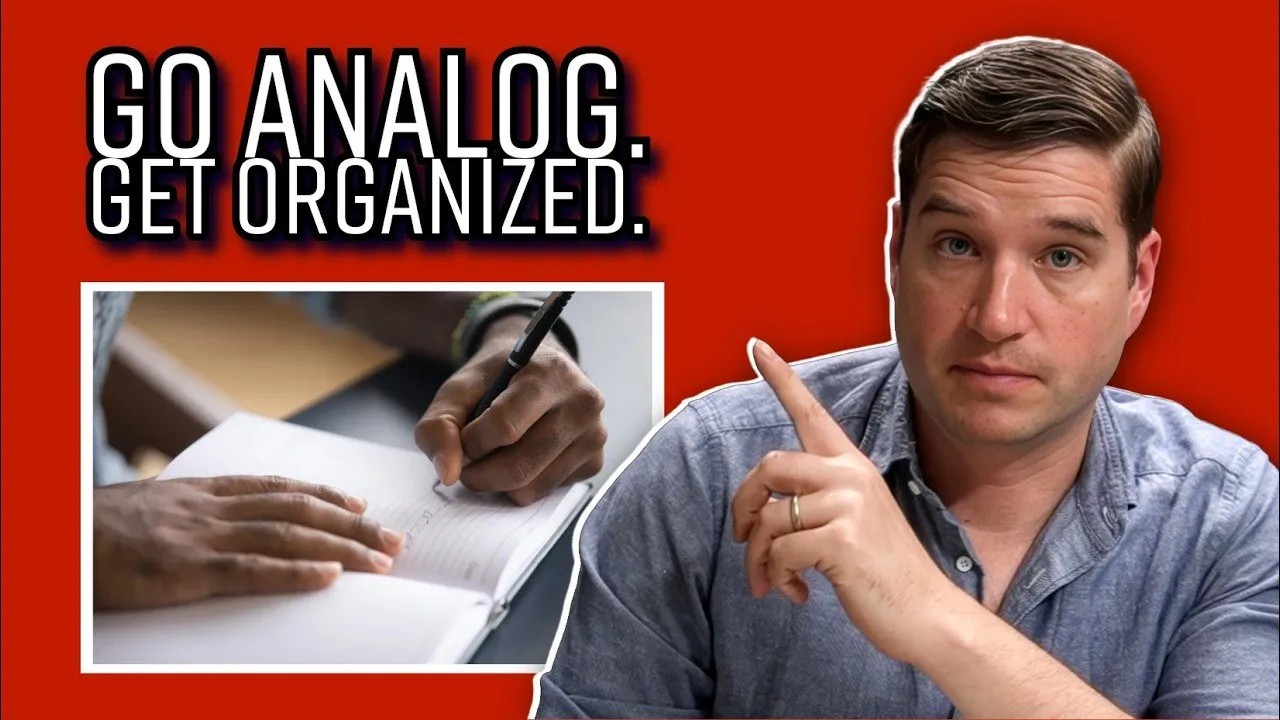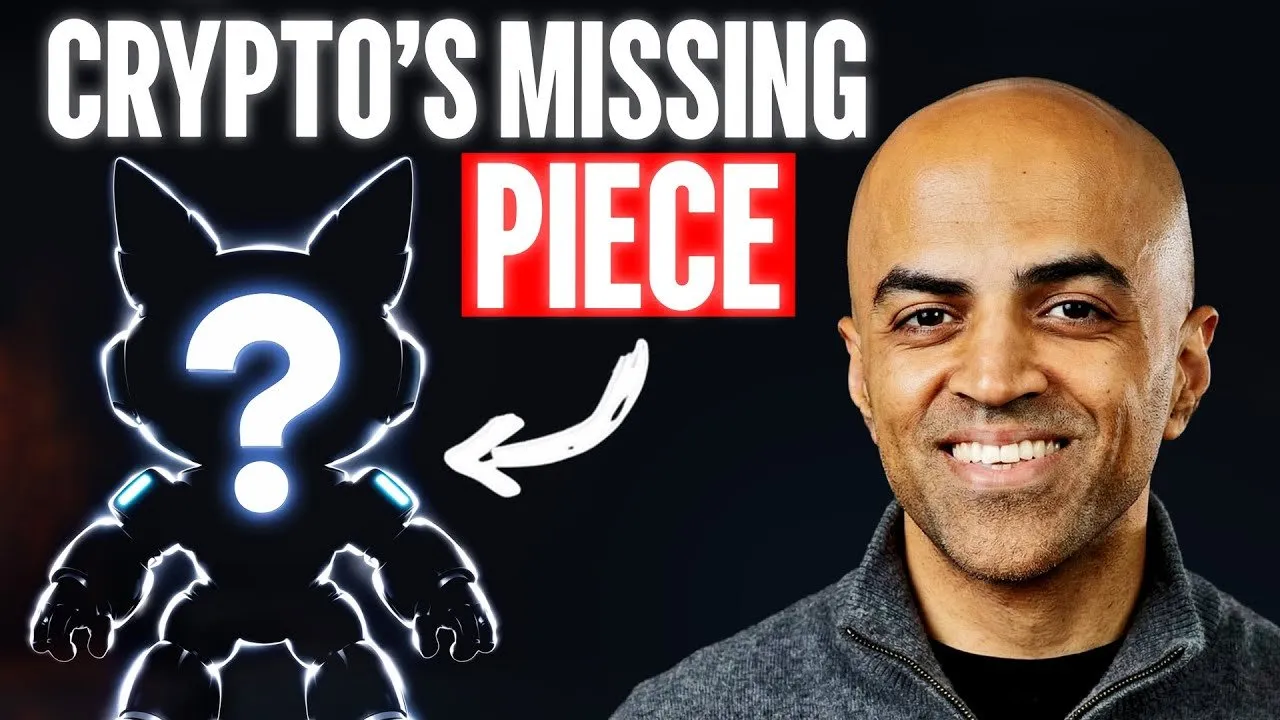Table of Contents
How Brunello Cucinelli transformed from an Italian farm boy into a luxury fashion mogul while proving that treating workers with dignity creates extraordinary business success.
Timeline Overview
- 00:00–15:00 — Childhood Foundation and Family Values: Growing up as a poor peasant in rural Italy, living without electricity or modern conveniences, learning the value of silence and developing deep family bonds
- 15:00–30:00 — Father's Humiliation and Early Philosophy: Witnessing his father's degrading treatment in city factories, developing the core mission to foster human dignity through business
- 30:00–45:00 — Education Through Books and Cafes: Discovering philosophy through extensive reading, engaging in late-night intellectual discussions at Italian cafes, forming his worldview
- 45:00–60:00 — The Entrepreneurial Awakening: Reading Theodore Levitt's "Marketing Imagination," recognizing the opportunity in high-quality luxury goods, deciding to focus on colored cashmere
- 60:00–75:00 — Company Foundation and Angel Investors: Starting with no money, finding suppliers and dyers willing to trust him, securing early customers who paid upfront
- 75:00–90:00 — The Salo Restoration Project: Buying the medieval castle, establishing the company headquarters in his beloved village, developing the master plan for community restoration
- 90:00–105:00 — Humanistic Capitalism Philosophy: Defining his approach to business that prioritizes human dignity, pays above-market wages, maintains reasonable working hours
- 105:00–120:00 — International Recognition and Growth: Expanding product lines, receiving global media attention, taking the company public while maintaining core values
Key Takeaways
- Cucinelli credits his success to daily solitude and thinking time, spending hours alone contemplating business and life philosophy
- His father's workplace humiliation became the driving force behind his mission to create dignified work environments for all employees
- Philosophy and literature shaped his entrepreneurial approach, with extensive reading providing guidance for ethical business practices
- The company was built on trust from suppliers and customers who believed in him despite having no money or collateral
- Focusing on one extraordinary product (colored cashmere) rather than diversifying allowed deep expertise and market dominance
- Paying 20% above market wages and maintaining humane working hours proved that ethical treatment enhances rather than hinders profitability
- Restoring his home village of Salo created a larger purpose beyond individual company success, generating significant positive media attention
- Taking the company public was motivated by belief that management ability cannot be inherited, ensuring future leadership based on merit
- Success requires embracing both youthful recklessness and patient long-term thinking, balancing instinct with accumulated wisdom
The Power of Solitude: Building a Thinking Practice
Cucinelli's success stemmed largely from his disciplined commitment to solitude and deep thinking, a practice developed from childhood necessity that became his greatest competitive advantage. He structured his days around extended periods of quiet reflection, viewing thinking time as essential rather than optional.
- Growing up without electricity, television, or modern distractions forced him to develop internal mental resources and comfort with silence from an early age
- He spent childhood nights staring at oak ceiling beams, letting his imagination create fantastic figures from wood grains and knots, developing visualization abilities
- Daily early morning walks through Salo before dawn became sacred thinking time, allowing him to process business challenges without external pressures
- Evening fireplace sessions could extend for six hours of pure contemplation, leading to what he called being "drunk with beautiful thoughts"
- This practice directly influenced major business decisions, with quiet reflection helping him recognize opportunities others missed in the fashion industry
- Warren Buffett and Charlie Munger's approach to scheduling thinking time rather than busy meetings provided validation for his instinctive preference for solitude
- The contrast between his contemplative approach and typical executive busyness became a defining characteristic that attracted international media attention
From Humiliation to Mission: The Father's Influence
The degrading treatment his father endured in city factories became Cucinelli's primary motivation for creating a business philosophy centered on human dignity. This foundational experience shaped every aspect of how he would later treat employees and structure company culture.
- His father's transition from respected farmer to humiliated factory worker demonstrated how industrialization could strip away human dignity despite economic necessity
- Witnessing his father's "teary eyes" from workplace mistreatment created the emotional core of Cucinelli's entrepreneurial mission to restore dignity to work
- The phrase "what have I done so wrong to be offended like this" from his father became a constant reminder of how not to treat people
- Early exposure to both rural community life and urban industrial alienation provided firsthand understanding of different approaches to human relationships in work
- His father's simple wisdom about keeping straight furrows because "this way looks better" instilled the connection between beauty, pride, and quality work
- The family motto that "debt works on Sundays too" taught financial responsibility that would later influence conservative business practices
- Years of watching his father's character remain intact despite external humiliation demonstrated the importance of internal values over external circumstances
Literary Education and Philosophical Foundation
Cucinelli's extensive reading program and participation in late-night cafe discussions provided the intellectual framework for his later business philosophy. Books became his primary teachers, offering wisdom from ancient scholars that shaped his approach to leadership and ethics.
- Philosophy became "the safest guide besides family memories," providing structure for decision-making throughout his entrepreneurial career
- Italian cafe culture exposed him to diverse perspectives from "the penniless and the genius, the unlucky and the affluent," creating real-world education unavailable in formal institutions
- Reading Theodore Levitt's "Marketing Imagination" provided the crucial insight that developed countries must specialize in high-quality products to compete with lower-cost manufacturers
- Ancient Greek texts and contemporary philosophy books were constantly referenced in business decisions, with timeless principles applied to modern challenges
- The practice of underlining meaningful passages and returning to them years later created a personal wisdom library for ongoing guidance
- Machiavelli's example of spending days socializing but nights in "solitary literary conversations with ancient scholars" became his model for balancing social and intellectual life
- Carl Sagan's description of books as "proof that humans are capable of working magic" captured his reverence for literature as a transformative force
The Cashmere Breakthrough: Focus and Quality Strategy
Cucinelli's decision to focus exclusively on colored cashmere sweaters demonstrated how concentrating on one exceptional product could create market dominance. His strategy involved identifying an underserved luxury segment and delivering unprecedented quality.
- The choice to dye cashmere in bright colors was initially considered "crazy" by expert dyers, indicating how innovation often appears irrational to established practitioners
- Focusing on "one single project representing the dream of your life" rather than diversifying allowed deep expertise development that competitors couldn't match
- The target market of "absolute luxury" meant creating products that were "expensive but not overpriced," requiring perfect balance of value and exclusivity
- Starting with only enough yarn for 60 sweaters required finding suppliers willing to extend credit based purely on character assessment rather than financial guarantees
- The "most important moment" of his life occurred when the expert dyer agreed to attempt the color process despite skepticism about the concept
- Early customers who paid upfront and on time became essential partners in business survival, demonstrating how relationships matter more than contracts in startup phases
- The strategy of doing the opposite of conventional wisdom (staying in villages rather than moving to cities) created unique positioning that attracted international attention
Trust-Based Business Building Without Capital
Cucinelli's company formation demonstrated how character and vision could substitute for financial resources when building relationships with suppliers and customers. Multiple "angels" appeared at crucial moments to provide the support needed for survival and growth.
- The yarn supplier's offer to "pay me when you get your first money" based solely on character assessment enabled the initial product creation without capital requirements
- Expert dyer Alesio's willingness to attempt the "crazy" coloring process despite technical skepticism showed how passion and persistence could overcome professional resistance
- First customer Albert France's timely payments created the cash flow foundation necessary for continued operations during the vulnerable startup period
- Customer Venzo's family decision to invest based on "entrepreneurial ability" rather than financial guarantees provided crucial expansion capital during early growth
- The generous offer of significant money with instructions to "put it in your business" demonstrated how authentic mission attracted unexpected support from stakeholders
- These early relationships established patterns of mutual trust and long-term thinking that became central to company culture as it scaled
- The repeated pattern of "angels disguised as men" saving the business at critical moments reinforced Cucinelli's belief in the importance of character over financial engineering
The Salo Restoration: Business as Community Development
Cucinelli's decision to locate his company in his beloved village of Salo and invest profits in community restoration created a larger purpose that transcended typical business objectives. This approach generated significant positive attention while demonstrating stakeholder capitalism principles.
- Purchasing the medieval castle tower for company headquarters symbolized the commitment to preserving history while creating economic opportunity in rural areas
- The master plan involved not just business success but complete village restoration, proving that companies could be forces for comprehensive community development
- Doing the opposite of conventional wisdom (staying in villages rather than moving to cities) created unique market positioning that attracted international media attention
- The 20% profit allocation for community improvement demonstrated how successful companies could systematically reinvest in stakeholder welfare rather than pure shareholder returns
- Employee wages 20% above market rates combined with humane working hours proved that treating people well enhanced rather than reduced profitability
- The school of arts and crafts paying students while training them preserved traditional craftsmanship skills while creating employment pathways for local residents
- International recognition for the Salo model influenced global discussions about sustainable business practices and stakeholder capitalism approaches
Humanistic Capitalism: Proving Dignity Drives Profits
Cucinelli's business philosophy demonstrated that prioritizing human dignity and employee welfare could enhance rather than reduce profitability. His approach challenged conventional assumptions about the trade-offs between ethics and business success.
- The core principle that "making profit should never harm or offend people" established clear boundaries around acceptable business practices while maintaining commercial viability
- Work schedules with 90-minute lunch breaks and 8 AM to 5:30 PM hours proved that reasonable expectations enhanced productivity compared to excessive demands
- No email policies restricting group messages and banning phones from meetings forced authentic human interaction and deeper thinking rather than surface-level communication
- Paying above-market wages attracted exceptional talent while creating loyalty that reduced turnover costs and enhanced company reputation
- The distinction between physical tiredness (acceptable) and "malaise of the soul" (unacceptable) provided clear guidance for evaluating work quality and environmental health
- Equal wages between workers and clerks eliminated artificial hierarchies that could create resentment or undermine collaborative relationships
- The success of these practices in a luxury goods company proved that ethical approaches could work even in highly competitive, profit-sensitive industries
International Recognition and Media Strategy
Cucinelli's unique approach to business attracted significant international media attention, demonstrating how authentic differentiation could generate valuable publicity without traditional marketing expenses. The story of humanistic capitalism resonated globally with audiences seeking alternatives to conventional corporate behavior.
- The first major international magazine feature created a "turning point for recognition" that established global credibility for both the company and its philosophy
- Media coverage focused on the unusual combination of luxury fashion success with village restoration and employee welfare, creating compelling narratives for journalists
- International customers, journalists, and tourists began visiting Salo specifically to witness the business model in action, creating ongoing publicity opportunities
- The contrast between typical corporate behavior and Cucinelli's approach made the story inherently newsworthy without requiring promotional campaigns
- Global media attention translated into business opportunities, with international markets asking for expanded product lines beyond the original cashmere sweaters
- The authenticity of the story prevented the typical skepticism that greets corporate social responsibility initiatives, since the practices were integrated into core operations
- Recognition through honorary degrees and speaking engagements created platforms for sharing the humanistic capitalism message with business and academic audiences
Legacy and Leadership Succession Philosophy
Cucinelli's approach to family business succession and public company transition demonstrated sophisticated thinking about leadership development and organizational sustainability. His philosophy emphasized merit over inheritance while maintaining core values.
- The principle that "you can't inherit the ability to run a business" led to going public to ensure future leadership selection based on competence rather than family relationships
- Conversations with his daughter about joining the company emphasized following personal instinct while understanding that management ability must be earned rather than assumed
- The decision to list on the Milan Stock Exchange was motivated by desires for international expansion and financial soundness rather than pure wealth creation
- Sam Walton's advice about not pushing children "too hard" influenced his approach to family involvement, recognizing that exceptional drive cannot be forced or inherited
- Taking the company public while maintaining controlling interest allowed access to capital markets while preserving the humanistic capitalism philosophy
- The emphasis on finding "someone outside the family" to manage if necessary demonstrated genuine commitment to organizational success over personal legacy
- Maintaining the core mission and values while enabling professional management showed how founders could transition without losing essential company character
Conclusion
Brunello Cucinelli's journey from peasant to billionaire demonstrated that business success and human dignity are not opposing forces but mutually reinforcing elements of sustainable enterprise. His story proves that companies built on authentic values, employee welfare, and community development can achieve extraordinary financial results while creating positive social impact. The combination of deep thinking, philosophical grounding, and practical application of humanistic principles offers a compelling alternative to conventional business practices that prioritize short-term profits over long-term sustainability and stakeholder welfare.
Practical Implications
- For Leadership Development: Daily solitude and thinking time should be scheduled as essential business activities rather than luxury indulgences, enabling deeper decision-making and strategic clarity
- For Company Culture: Treating employees with dignity through above-market compensation and reasonable working hours enhances productivity and reduces turnover costs
- For Product Strategy: Focusing intensively on one exceptional offering rather than diversifying allows deeper expertise development and market dominance in luxury segments
- For Community Relations: Investing profits in local community development creates positive publicity and stakeholder loyalty while demonstrating authentic commitment to shared prosperity
- For Business Philosophy: Reading extensively and applying philosophical principles to business decisions provides ethical frameworks for navigating complex challenges
- For Succession Planning: Merit-based leadership selection rather than family inheritance ensures organizational sustainability while maintaining core values and mission commitment





